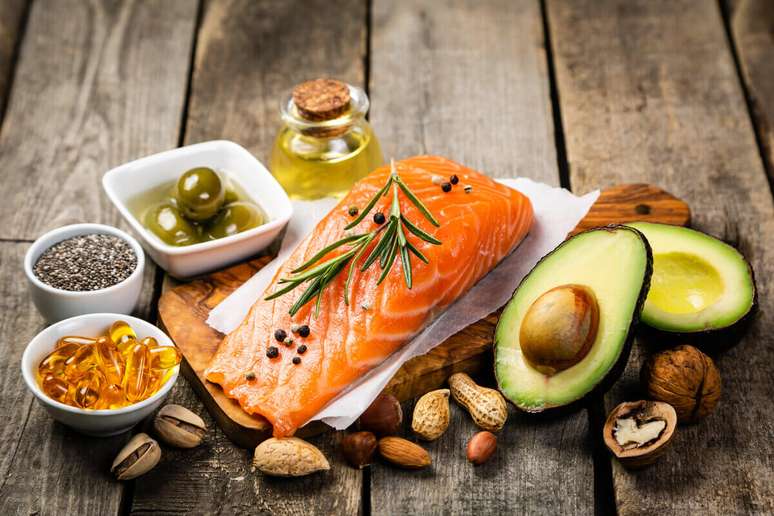Nutritionists explain how taking care of your diet is important to prevent heart disease
Cholesterol is essential for the body, as it is responsible for all the membranes that surround cells and helps in metabolic processes. It is also necessary for cell growth and regeneration and, in addition to being present in the blood and all tissues, it contributes to the production of sex hormones and cortisol (a hormone related to stress).
In this context, nutrition plays an important role in preventing and maintaining adequate levels of cholesterol in the blood. “An inadequate diet, rich in saturated fats, trans fats, simple carbohydrates and poor in fiber can favor an increase in cholesterol”, warns Joana Lucyk, master in Nutrition at UnB (University of Brasilia).
Good cholesterol protects the body by collecting bad cholesterol deposited in the blood vessels to be eliminated by the liver. Bad cholesterol, in turn, if present in large quantities in the body, can cause blockage of the arteries – atherosclerosis, responsible for cardiovascular problems such as heart attacks and strokes.
Influence of habits on cholesterol
Both types of cholesterol can be influenced by lifestyle habits. For example, good cholesterol can increase when you exercise or eat certain foods. Bad cholesterol, on the other hand, increases due to factors such as poor diet and being overweight and is generally associated with other risk factors such as diabetes, smoking and hypertension.
Action of fats on cholesterol
It is important to understand that there are different types of fat and that some bring more benefits than others. Therefore, for a balanced diet, it is necessary to respect the ideal quantities of consumption for each.
“Saturated fats are found in foods of animal origin such as meat, eggs, butter, milk and dairy products. They should constitute up to 10% of the total energy of the daily diet. These fats increase the risk of dyslipidemia (high levels of fat in the blood) and heart disease and, for this reason, should be consumed in moderation”, explains nutritionist Gabriela Marcellino.
Unsaturated fats are beneficial to the body, but they should also be consumed in moderate quantities. They are divided into monounsaturated, found in vegetable oils and oilseeds, and polyunsaturated, found in vegetable oils and cold-water fish oil. Therefore, it is not advisable to completely exclude fats, but to choose them based on their nutritional quality.

Types of Fats
Below, nutritionist Simone Abreu explains in detail what saturated, unsaturated and trans fats are. Watch:
1. Saturated fats
It is a type of fat found mainly in products of animal origin and which, at room temperature, appears in a solid state.
Where is it: Red meat and white (mainly meat fat and poultry skin), milk and whole milk products (butter, cream, yogurt, cream) and palm oil.
3. unsaturated fats
Mainly found in vegetables, it is liquid at room temperature. There are monounsaturated (with only one carbon double bond) and polyunsaturated (with more than one carbon double bond). It helps reduce bad cholesterol, triglycerides (a type of fat that, at high levels, can cause coronary heart disease) and blood pressure.
Where is it: olive oil, rapeseed oil and corn oil, almondBrazil nuts, avocado, flaxseed, trout and salmon.
3. Trans fats
It is a type of fat formed by a chemical process (hydrogenation), in which liquid vegetable oils are transformed into a solid fat. It has no health benefits. That type of fat increases bad cholesterol and, at the same time, reduces good cholesterol.
Where is it: margarine, biscuits, crisps, ice cream and packaged snacks.
Source: Terra
Ben Stock is a lifestyle journalist and author at Gossipify. He writes about topics such as health, wellness, travel, food and home decor. He provides practical advice and inspiration to improve well-being, keeps readers up to date with latest lifestyle news and trends, known for his engaging writing style, in-depth analysis and unique perspectives.







![Everything starts here: What awaits you on Tuesday July 1, 2025, on Tuesday, 1209 episode [SPOILERS] Everything starts here: What awaits you on Tuesday July 1, 2025, on Tuesday, 1209 episode [SPOILERS]](https://fr.web.img2.acsta.net/img/61/cd/61cd89fefa3366e0896cefac30d6d4a0.jpg)
![New Day ahead: What are you waiting for on Tuesday, July 1, July 1, 2025 [SPOILERS] New Day ahead: What are you waiting for on Tuesday, July 1, July 1, 2025 [SPOILERS]](https://fr.web.img4.acsta.net/img/13/55/13559978bcbafa2e67c97d6d97b254f5.jpg)
